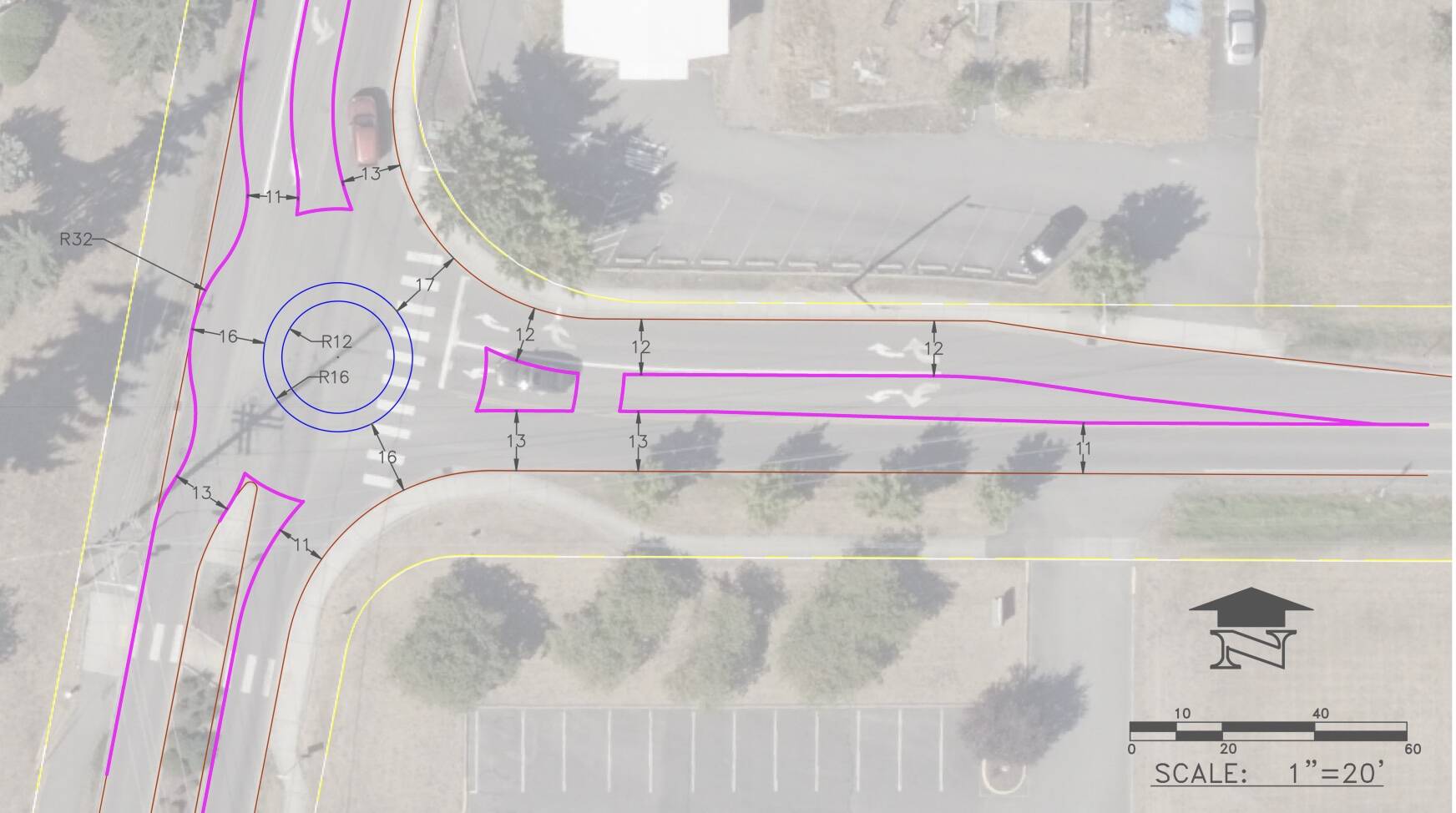Oak Harbor drivers may get two new roundabouts to circle during the next couple of years.
At a workshop last week, council members heard two different presentations about plans for the smaller-than-usual roundabouts at the intersection of North Oak Harbor Street and Northeast Seventh Avenue at the intersection of Highway 20 and Fakkema Road.
After a consultant’s estimate for a full-size roundabout at the Oak Harbor Street site came in at $1.9 million, interim Public Works Director Mick Monkin proposed building a mini-roundabout instead. Most of the work would be done by city staff and the cost would be just $26,000-$32,000, he said.
The difference is largely size, but Monkin said they will essentially be the same to drivers. The mini-roundabout — a design he pioneered in Lake Stevens — will be within the footprint of the existing road, which means no right-of-way land will have to be purchased.
The mini-roundable would have an un-raised or minimally raised center, which trucks and buses will be able to drive over. The interim public works director said the mini-roundabout will improve traffic, pedestrian and bicyclist safety, as well as improve traffic flow.
Monkin explained that the intersection can be tricky for both drivers and pedestrians.
Councilmember Shane Hoffmire said he lives in the area and hundreds, if not thousands, of school kids walk through the intersection each day. He and other council members said they were impressed by the cost savings through ingenuity.
“This kind of thinking really would have prevented the suffering to the ratepayers for the things like the wastewater treatment plant,” Hoffmire said.
In addition, the state Department of Transportation proposed building a similar “compact roundabout” at the Highway 20 and Fakkema Road intersection because of the high number of accidents.
Spencer Beier, a project engineer for WSDOT, said the project was identified as a traffic safety project.
“WSDOT has recently constructed several compact roundabouts as practical solutions that minimize costs while reducing serious and fatal crash potential at times very similar to this,” he said.
The compact roundabout would be built within the existing roadway, so no property would need to be purchased. Less-expensive precast curbing and additional asphalt surfacing within the curbs would be used to prevent larger trucks to travel over the islands in the middle of the roundabout.
An average 17,000 vehicles cross the intersection per day; 3% are trucks, he said.
Beier said the traffic circle would increase mobility while reducing speed, which means fewer serious accidents.
The project would cost the state an estimated $930,000 to design and build.
Beier said the department is starting outreach efforts this spring. If everything goes as planned, it could be built in 2024.



